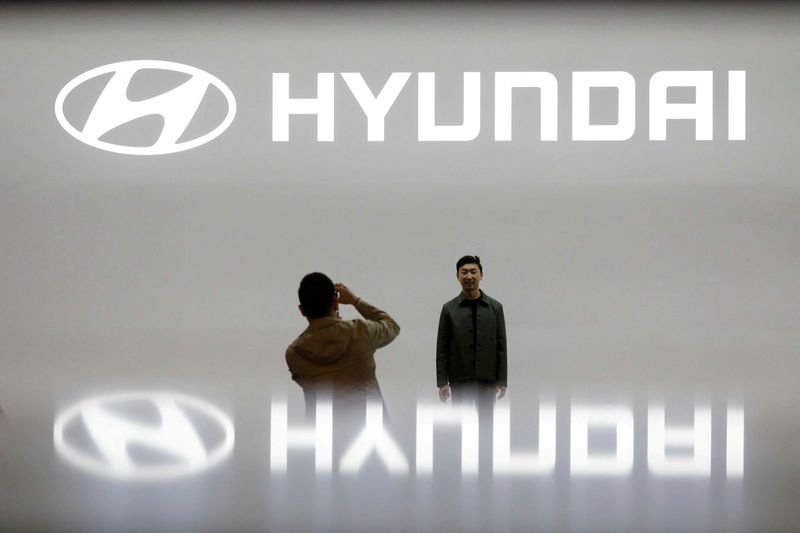By Heekyong Yang and Joyce Lee
SEOUL (Reuters) -South Korea's Hyundai Motor Co said on Wednesday it planned to invest about 95.5 trillion won ($79.21 billion) through 2030, including about 19.4 trillion won ($16.10 billion) towards electric vehicle (EV) related businesses.
Hyundai Motor, which together with affiliate Kia Corp is among the world's top 10 biggest automakers by sales, targets to achieve a 7% market share in the global EV market by 2030, with an annual sales target of 1.87 million vehicles, the automaker said during a virtual investor day.
The Seoul-based automaker said it aimed to achieve an operating profit margin of 10% or higher in EV business by 2030.
"Hyundai is successfully accelerating its transition to electrification and becoming a global leader in EVs despite a challenging business environment caused by the global chip shortage and ongoing pandemic," Hyundai Motor Chief Executive Officer Jaehoon Chang said.
Analysts, however said Hyundai's $16 billion investment in EV business would not be considered an "aggressive" approach compared to its rivals, adding, the investment is easily dwarfed by bigger rivals including Toyota Motor (NYSE:TM) Corp, which plans to invest 8 trillion yen ($69.43 billion) for electrification by 2030.
"Hyundai is allocating about 20% of its 95.5 trillion won investment to EV related businesses, which includes building new plants, EV charging stations and strategic alliances with battery manufacturers and the investment amount for EV does not seem too surprising or aggressive," said Eugene Investment & Securities analyst Lee Jae-il.
Chang said Hyundai was considering building new dedicated EV production plants without proving details of new factories, including locations and timeline.
Analysts said Hyundai would be eying on building dedicated EV factories in the United States, as it considers that as its key EV market.
Shares in Hyundai Motor closed down 2.6%, compared to the benchmark KOSPI's 0.2% gain.

($1 = 1,205.2600 won)
($1 = 115.2300 yen)